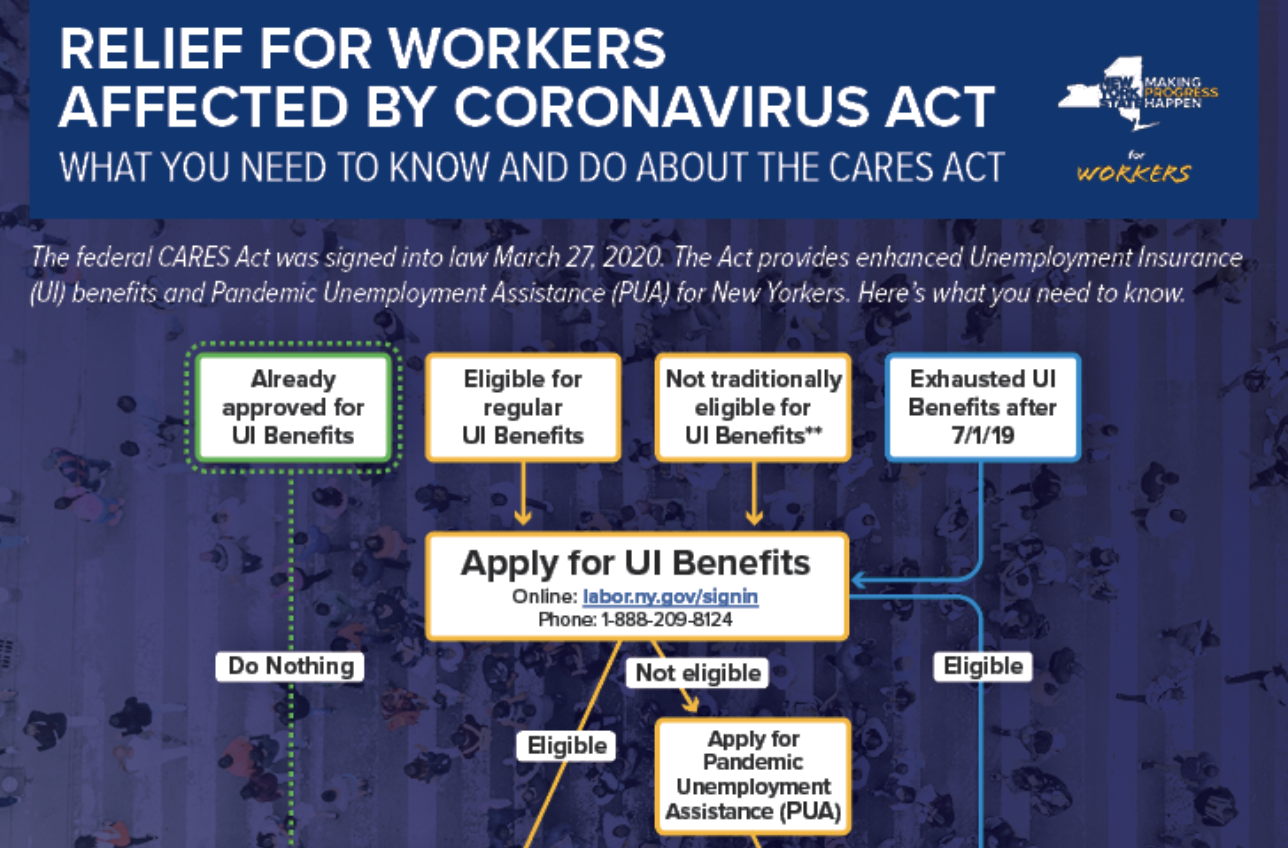As brokers come to terms with the state’s reclassifying some of their work as essential, many are worried it will prevent them from collecting unemployment benefits.
In late March the federal government offered “pandemic unemployment assistance” to people affected by the outbreak. Independent contractors — a group typically denied state unemployment support — were made eligible.
The Real Deal asked New York’s Department of Labor to clarify whether last week’s classification change, which let brokers conduct virtual showings and in-office signings, affects whether independent contractors can get unemployment benefits. A spokesperson for the agency responded that “if an independent contractor, whether deemed an essential business or not, is affected by Covid-19, and the independent contractor is not working as a result of Covid-19, they can file for unemployment.”
Anthony Carabba, an employment lawyer with Carabba Law, said he believes eligibility for the payments is less about being essential than about “whether the contractor can otherwise meet the pandemic unemployment assistance standards.”
Those standards welcome applications from people whose workplaces have closed down, who can’t get to their jobs because of quarantines, or who are caring for school-aged children at home under lockdown. Successful applicants will receive 26 weeks of the usual benefit and an additional $600 per week until July 31.
However, one potential wrinkle for brokers is that individuals are not eligible for the benefits if they are able to “telework,” the state Department of Labor’s website says. It’s unclear if that simply means working from home or if someone can get benefits if telework doesn’t bring in enough income. At time of publication, the Department of Labor had not responded to requests for clarification.
“Although these rules are just days old and we can’t know for sure, I would suspect that if the broker is able to work remotely and hold virtual showings, and clients are participating and closings are being held, it would be more difficult to collect unemployment benefits,” Carabba said. “But if the broker has no business, because the clients are not interested in buying or selling in these conditions, then teleworking doesn’t seem like much of an option and perhaps they would be able to collect the benefits.”
The latter argument, he added, “equates to a business slowdown or ‘lack of work’ that typically permits the receipt of unemployment benefits.”
Carabba said he was basing his interpretations on traditional unemployment support, but emphasized that this an uncharted area and it will take time to see how the new program works out.
“This is the first time that independent contractors and gig-economy workers are even eligible [for unemployment],” he said. “This has never happened before, so it’s impossible to say how these concepts will be applied.”
Read more

Many brokers who have attempted to apply for the benefits report lengthy delays and other administrative headaches as the system has been overwhelmed by applications.
“I have heard from many, many agents who are saying, ‘It’s a long wait time; it’s hard to get through,’” said Bess Freedman, CEO of Brown Harris Stevens. “I’ve had a few agents tell me they were [on the website] for like an hour, filling out information, and everything got lost.”
In a tweet Monday, a spokesperson for Empire State Development — the state’s economic development arm — said calls about unemployment assistance were up 16,000 percent over a normal week, and website visits were up 900 percent.
“We are adding hundreds of call center staff, dozens of additional servers, and streamlining the application process,” he tweeted.
As confusion mounts — not only about unemployment but about the vagaries of doing business as the virus proliferates — the Real Estate Board of New York has tried to offer some clarity. This week, it emailed members guidance about applying for unemployment benefits and hosted a webinar about virtual closings.
The front-footed approach is a shift from last week when the New York State Association of Realtors sent out an email-blast about the state’s apparent classification shift, which caught REBNY off guard, according to sources familiar with the matter.
The next day REBNY warned its members that the guidelines were “not final” and that until the state posted official guidance on the matter, brokers should adhere to the governor’s original stay-home order.
Empire State Development confirmed the reclassification to TRD Wednesday night, adding that remote and virtual work was strongly encouraged. The next day, it clarified in a second email that showings had to be virtual.
“Being an ‘essential’ industry does not mean business as usual — business can only be conducted if social distancing and other public health protocols are followed and all must be doing everything they can to help stop the spread,” a spokesperson said in a statement. “For real estate, that means brokers can only transact business in their offices or show properties virtually, and anything else is off limits.”
Brokers can check their eligibility for pandemic unemployment assistance here and apply here.
Write to Sylvia Varnham O’Regan at so@therealdeal.com
